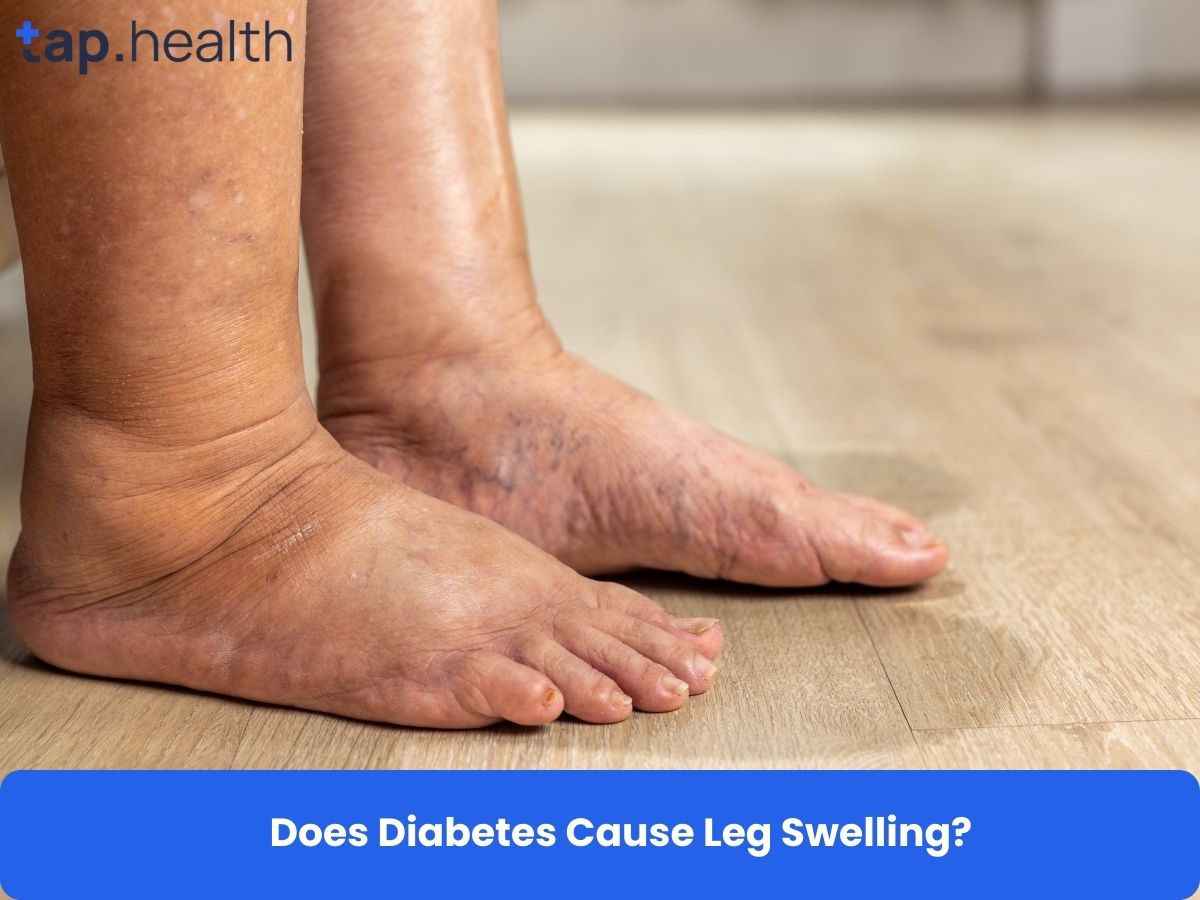Table of Contents
- Early Diabetes Detection: Signs & Symptoms
- Expert Diagnosis of Diabetes: Tests & Procedures
- Understanding Diabetes: A Comprehensive Guide
- Is it Diabetes? Early Detection and Expert Diagnosis
- Preventative Care and Early Diagnosis of Diabetes
- Frequently Asked Questions
- References
Living with diabetes can be challenging, but early detection and proper management can significantly improve your quality of life. That’s why understanding diabetes is so crucial. This blog post focuses on Understanding Diabetes: Early Detection & Expert Diagnosis, guiding you through the key symptoms, risk factors, and diagnostic processes. We’ll explore how early intervention can prevent serious complications and empower you to take control of your health. Let’s delve into the essential knowledge you need to navigate this condition effectively and confidently.
Early Diabetes Detection: Signs & Symptoms
India faces a significant challenge with the alarmingly high number of early-onset diabetes cases, often beginning between the ages of 25 and 40. This makes early detection crucial. Understanding the subtle signs and symptoms is your first line of defense against this increasingly prevalent condition, particularly in tropical countries like India.
Common Symptoms to Watch For
While some individuals experience no symptoms in the early stages, many exhibit telltale signs. Frequent urination, especially at night (polyuria), is a key indicator. Excessive thirst (polydipsia) and unexplained weight loss are other common symptoms. Blurred vision can also be an early warning sign, as can slow-healing sores or frequent infections. Fatigue and unexplained tingling or numbness in the hands or feet are also worth noting. In some cases, individuals might experience recurring yeast infections or skin infections.
Less Obvious Warning Signs
It’s important to note that these symptoms can be subtle and easily dismissed. Pay attention to changes in your body, such as increased hunger even after eating, and unexplained irritability or mood swings. These may indicate an underlying metabolic imbalance. High blood pressure or high cholesterol, often linked to insulin resistance, should also prompt a check-up. Early detection and prompt intervention can significantly improve long-term health outcomes. For more information on recognizing early signs, you might find 10 Early Signs and Symptoms of Diabetes? – Tap Health helpful.
Taking Action in India and Tropical Countries
Given the high prevalence of early-onset diabetes in India and other tropical regions, proactive health checks are essential. Regular blood sugar testing, even if you feel well, is crucial. Consult your doctor if you experience any of the above symptoms, especially if you have a family history of diabetes. Early diagnosis allows for timely lifestyle modifications and medical interventions, significantly reducing the risk of long-term complications. Don’t hesitate—your health is your greatest asset. As you age, managing diabetes presents unique challenges. Learn more about Managing Diabetes as You Age: Challenges and Solutions.
Expert Diagnosis of Diabetes: Tests & Procedures
Understanding the Diagnostic Process
Early detection is crucial in managing diabetes effectively. A staggering 50% of diabetes cases worldwide remain undiagnosed, according to the IDF Diabetes Atlas, highlighting the urgent need for increased awareness and accessible testing, especially in regions like India and other tropical countries. This often necessitates a multi-faceted approach to diagnosis, considering the unique challenges and prevalent risk factors within these populations.
Key Diagnostic Tests
Diagnosis typically involves a combination of tests. A fasting plasma glucose (FPG) test measures blood glucose levels after an overnight fast. Oral glucose tolerance test (OGTT) measures glucose levels at intervals after consuming a sugary drink, providing a more comprehensive picture of glucose metabolism. A glycated hemoglobin (HbA1c) test reflects average blood sugar levels over the past 2-3 months, offering a long-term perspective on glucose control. In many cases, a combination of these tests is used to confirm the diagnosis and determine the type of diabetes. Understanding the link between lifestyle and the disease is also crucial; learn more by reading our article on Understanding the Link Between Diabetes and Obesity.
Regional Considerations
In India and other tropical countries, certain factors like genetic predisposition, lifestyle, and access to healthcare facilities significantly influence diabetes diagnosis. Early screening is paramount, especially for individuals with a family history of diabetes or those exhibiting symptoms like increased thirst, frequent urination, and unexplained weight loss. Regular health check-ups and proactive consultations with healthcare professionals are essential for timely diagnosis and management. Seeking expert medical advice tailored to your specific needs and regional context is crucial for effective diabetes care. Once diagnosed, effective management is key. Check out our tips for 10 Proven Tips for Effective Diabetes Management.
Understanding Diabetes: A Comprehensive Guide
Diabetes, a chronic condition affecting millions globally, disproportionately impacts the working-age population. A staggering 61% of those with diabetes are between 20 and 64 years old, according to the International Diabetes Federation (IDF). In Indian and tropical countries, where lifestyle changes and genetic predispositions can increase risk, early detection becomes even more critical. Understanding the symptoms and seeking timely medical attention is paramount.
Recognizing the Signs
Common symptoms include excessive thirst and urination, unexplained weight loss, increased hunger, blurry vision, and slow-healing sores. However, Type 2 diabetes often develops gradually, with subtle symptoms easily overlooked. Many individuals in the 20-64 age group, particularly those in high-risk populations in India and tropical regions, might attribute these symptoms to other factors, delaying diagnosis. Regular health checkups, including blood glucose testing, are crucial for early detection, especially for those with a family history of diabetes or risk factors such as obesity and inactivity.
Seeking Expert Diagnosis
A proper diagnosis involves blood tests to measure blood glucose levels (fasting and/or HbA1c). It is crucial to consult a qualified healthcare professional for accurate diagnosis and personalized treatment plans. Early intervention significantly improves management and reduces long-term complications. Remember, while the IDF data highlights a large 65+ age group impacted (39%), preventing diabetes in younger adults is equally vital. Once diagnosed, learning how to effectively manage diabetes is key to long-term health.
Taking Action
In India and other tropical countries, access to healthcare can vary. Proactive steps like maintaining a healthy diet, regular exercise, and managing stress are crucial preventative measures. Consult your doctor or local health clinic to discuss screening and risk assessment, especially if you fall within the high-risk demographics. Early detection and appropriate management can significantly improve quality of life and prevent serious health complications. For those planning travel, it’s also important to consider how to manage diabetes while traveling to ensure a safe and healthy journey.
Is it Diabetes? Early Detection and Expert Diagnosis
The global burden of diabetes is staggering. Data from the IDF Diabetes Atlas projects a rise from 536.6 million people (aged 20-79) living with diabetes in 2021 to a projected 783.7 million in 2045. This alarming increase, representing a prevalence rise from 9.8% to 11.2%, significantly impacts Indian and tropical countries, where diabetes prevalence often mirrors or exceeds global averages. Early detection is crucial to managing this chronic condition effectively.
Understanding the Symptoms
In many tropical and Indian settings, access to timely diagnosis can be limited. Recognizing common symptoms like excessive thirst (polydipsia), frequent urination (polyuria), unexplained weight loss, and persistent fatigue is the first step. However, type 2 diabetes often presents subtly, with symptoms developing gradually over time. Individuals may experience blurred vision, slow-healing sores, or frequent infections. For those with a family history of diabetes or who fall into high-risk groups (obesity, sedentary lifestyle), increased vigilance is vital. Understanding the underlying causes is also important, so you might find our article on Is Diabetes Caused by a Virus or Bacteria? helpful.
Seeking Expert Diagnosis
Don’t self-diagnose. Consulting a physician is essential. A simple blood glucose test, either fasting or random, can determine blood sugar levels. Further tests, like HbA1c (measuring average blood sugar over time) and oral glucose tolerance tests (OGTT), provide a more comprehensive assessment. In India and other tropical regions, there’s often a greater prevalence of gestational diabetes, emphasizing the need for regular testing during pregnancy. Early and accurate diagnosis, followed by appropriate lifestyle modifications and/or medical intervention, is key to preventing serious long-term complications, such as heart disease, kidney failure, and blindness. It’s also important to understand the relationship between diabetes and other health concerns, such as cancer. You can learn more in our article: Does Diabetes Cause Cancer?
Taking Action
If you are concerned about your risk of diabetes, or experiencing any of the symptoms mentioned above, schedule a check-up with your doctor immediately. Early intervention significantly improves the chances of managing diabetes effectively and preventing devastating health consequences. Remember, proactive healthcare is especially crucial in the context of rising diabetes prevalence in Indian and tropical countries.
Preventative Care and Early Diagnosis of Diabetes
Diabetes is a rising health challenge in India and other tropical countries. The good news is that up to 80% of Type 2 diabetes cases can be delayed or even prevented with lifestyle changes, according to the Indian government’s Press Information Bureau. This makes early detection and prevention more important than ever.
Understanding Risk Factors
Certain factors can raise your chances of developing diabetes, especially in tropical regions. These include:
-
Family history of diabetes
-
Obesity or being overweight
-
Lack of regular physical activity
-
Diets high in refined carbohydrates and saturated fats
In India, where carb-heavy meals and fried foods are common, these risks are particularly significant. That’s why regular health check-ups—including blood sugar and HbA1c tests—are crucial. Detecting problems early allows for timely intervention and reduces the chance of long-term complications.
Lifestyle Changes for Prevention
The best way to prevent or delay diabetes is to make sustainable lifestyle changes:
-
Eat balanced meals: Focus on fruits, vegetables, whole grains, and lean proteins.
-
Stay active: Even a brisk 30-minute walk most days can greatly reduce risk.
-
Maintain a healthy weight: Shedding extra kilos lowers the strain on your body.
These habits not only lower the risk of Type 2 diabetes but also improve overall health and energy.
Seeking Expert Diagnosis
If you notice symptoms such as:
-
Excessive thirst
-
Frequent urination
-
Unexplained weight loss
-
Blurred vision
…it’s important to see a doctor right away. A physician may recommend tests like fasting blood glucose and HbA1c to confirm whether you have diabetes or are at risk.
With early diagnosis, you can start a personalized plan to prevent complications and take control of your health. For more insights, check out: How Diabetes Education Enhances Health Outcomes – Tap Health.
✅ Key takeaway: Diabetes can often be prevented or delayed with simple but consistent lifestyle changes. Early testing, proactive care, and professional guidance are the strongest tools to protect your long-term health.
Frequently Asked Questions on Diabetes: Early Detection & Expert Diagnosis
Q1. What are the common symptoms of diabetes?
Common symptoms include frequent urination, excessive thirst, unexplained weight loss, blurred vision, slow-healing sores, and fatigue. Less obvious signs are increased hunger, irritability, high blood pressure, and high cholesterol.
Q2. How is diabetes diagnosed?
Diagnosis involves blood tests such as fasting plasma glucose, oral glucose tolerance, and glycated hemoglobin tests.
Q3. What preventative measures can I take to reduce my risk of developing diabetes?
Maintaining a healthy weight, eating a healthy diet, and getting regular exercise are key preventative measures. Regular blood sugar testing is also recommended, especially if you have a family history of diabetes.
Q4. Why is early detection of diabetes so important?
Early detection is crucial for effective management and to reduce the risk of long-term complications. In India and other tropical countries, early-onset diabetes is prevalent, making early detection even more critical.
Q5. What should I do if I experience symptoms of diabetes?
Consult a doctor immediately if you experience any of the symptoms mentioned. Early diagnosis and management are vital for preventing serious health issues.
References
- A Practical Guide to Integrated Type 2 Diabetes Care: https://www.hse.ie/eng/services/list/2/primarycare/east-coast-diabetes-service/management-of-type-2-diabetes/diabetes-and-pregnancy/icgp-guide-to-integrated-type-2.pdf
- Understanding Diabetes and Prediabetes: https://wvdiabetescollaborative.wvu.edu/files/d/0f1a1ae9-bcb4-4af5-8118-7dd7e5ca7f39/wvdc-toolkit-1.pdf



